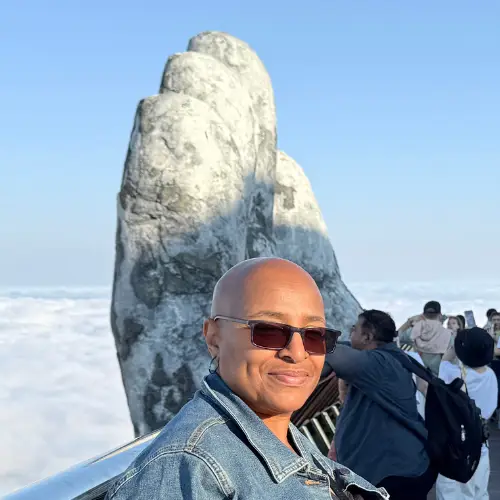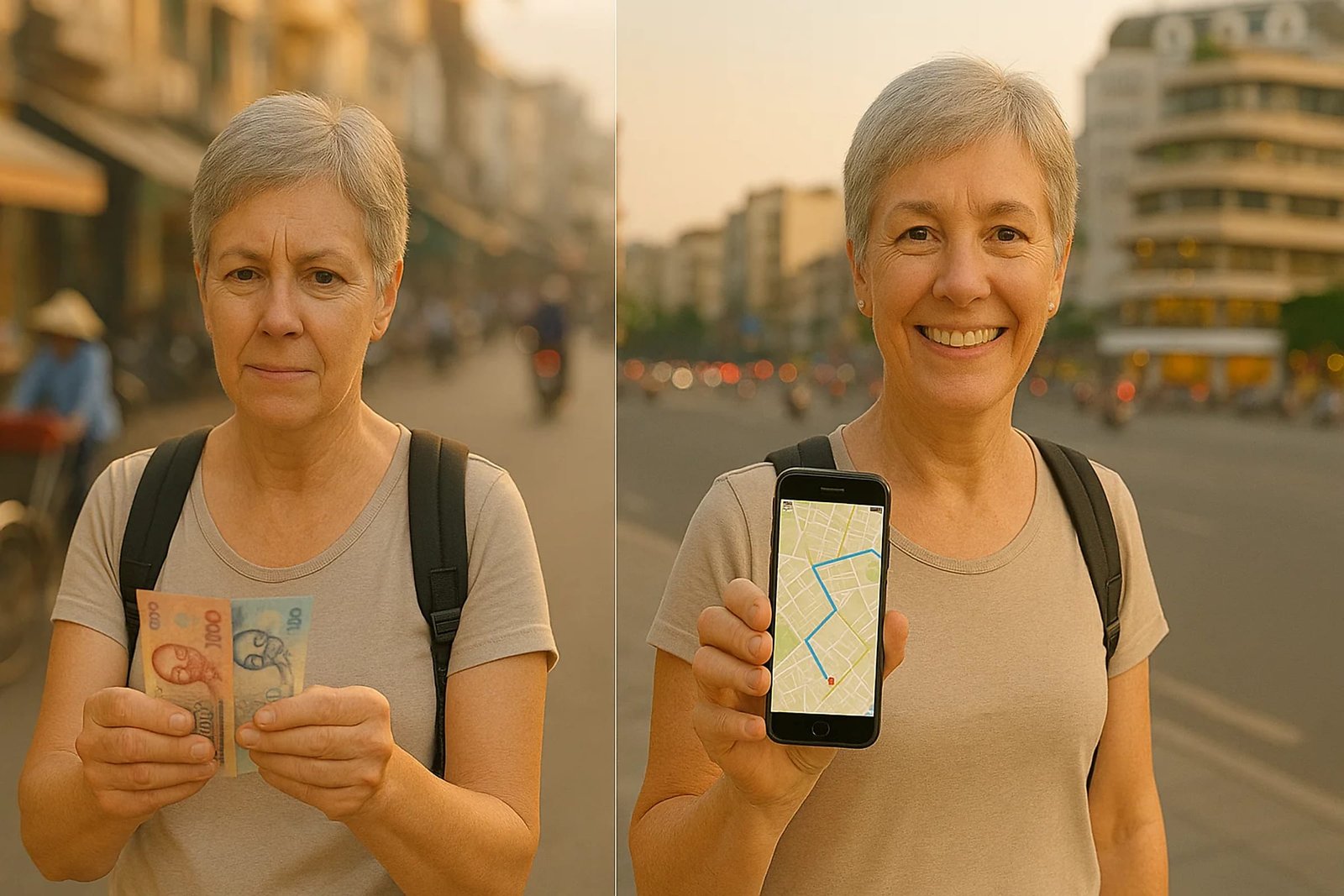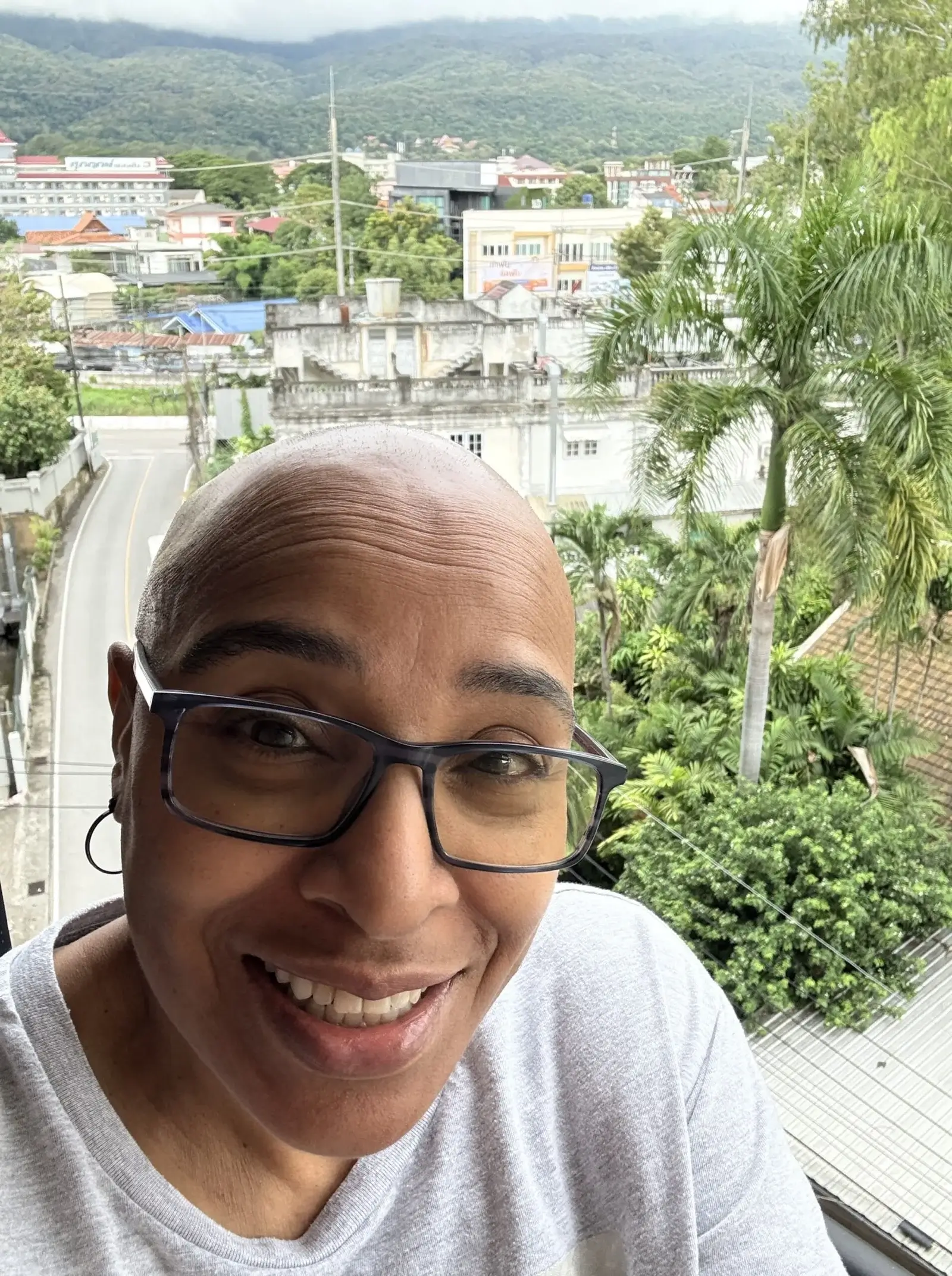Wellness Travel for Seniors: Accessible Retreats and Relaxation Tips
Nearly 60% of consumers who traveled for health and wellness treatments in 2024 plan to continue wellness travel in 2025, according to McKinsey’s Future of Wellness survey. This remarkable statistic reflects a growing revolution in how seniors approach travel and well-being. With 52% of adults aged 50+ now ranking travel and vacation as their number one priority for discretionary spending, wellness tourism has evolved into a $651 billion industry annually, forecasted to grow 16.6% through 2027.
The convergence of health consciousness and travel aspirations has created unprecedented opportunities for seniors seeking meaningful, restorative experiences. More than 1 in 10 travelers aged 50+ require disability accommodations, with 78% needing mobility assistance, according to AARP’s 2024 Travel Trends survey. This reality has sparked innovation in accessible wellness travel, transforming how destinations and service providers cater to senior travelers’ unique needs.
Current Wellness Travel Trends for Seniors (2024-2025)
The landscape of wellness travel has evolved dramatically, with seniors leading many emerging trends that prioritize mindful, health-focused experiences over traditional sightseeing.
Digital Detox and “Slowcations” have become increasingly popular among seniors seeking to disconnect from technology and reconnect with themselves. These extended stays at peaceful destinations emphasize rest, reflection, and gradual exploration rather than packed itineraries. Many wellness resorts now offer “phone-free zones” and structured programs that encourage guests to engage with nature and community instead of screens.
Forest Bathing and Sound Healing Retreats represent a growing interest in nature-based wellness practices. Originating from the Japanese practice of “shinrin-yoku,” forest bathing involves mindful immersion in natural environments. Combined with sound healing sessions featuring singing bowls, gongs, and natural soundscapes, these experiences offer profound stress reduction benefits particularly valuable for seniors managing chronic conditions or life transitions.
Longevity-Focused Wellness Programs have gained traction as seniors seek travel experiences that actively contribute to healthy aging. These comprehensive programs combine nutrition education, gentle movement practices, cognitive health activities, and social connection opportunities. Many destinations now partner with longevity experts to offer scientifically-backed programs addressing specific concerns like joint health, memory enhancement, and cardiovascular wellness.
Mental Wellness and Stress Reduction Travel has emerged as a priority following increased awareness of mental health needs. Destinations specializing in therapeutic environments offer meditation retreats, art therapy workshops, and mindfulness training specifically designed for seniors. These programs often incorporate elements of healthy living through structured daily routines that promote both physical and mental well-being.
Top Accessible Wellness Destinations
Creating inclusive wellness travel experiences requires destinations that seamlessly blend accessibility features with therapeutic environments. The most successful wellness destinations for seniors have earned recognition through comprehensive accessibility certifications and partnerships with specialized platforms.
Domestic Accessible Wellness Havens lead the way in combining familiar comfort with innovative accessibility. The Sanctuary at Kiawah Island Golf Resort in South Carolina offers wheelchair-accessible spa treatments, adaptive yoga classes, and accessible nature trails. Their partnership with Wheel the World platform ensures detailed accessibility information is readily available to potential travelers. The resort’s dining facilities feature anti-inflammatory menu options and accommodate various dietary restrictions common among senior travelers.
Canyon Ranch in Lenox, Massachusetts, has revolutionized accessible wellness with roll-in showers, adjustable treatment tables, and sensory-friendly spa environments. Their wellness programs are tailored by mobility level, offering chair-based fitness classes alongside traditional activities. The resort’s healthy cuisine program emphasizes heart-healthy, Mediterranean-inspired meals that support long-term wellness goals.
International Wellness Sanctuaries provide transformative experiences while maintaining high accessibility standards. The SHA Wellness Clinic in Spain combines luxury accommodations with medical-grade wellness programs. Their accessibility features include adapted rooms, wheelchair-accessible treatment areas, and specialized transportation. The clinic’s focus on healthy travel extends to their comprehensive pre-arrival health assessments and coordinated care with guests’ home healthcare providers.
Vichy Celestins Spa Hotel in France exemplifies European wellness tourism excellence with century-old thermal healing traditions adapted for modern accessibility needs. Their therapeutic treatments utilize natural mineral waters in accessible facilities, while their outdoor adventures include guided accessible walks through historic spa gardens.
Health Travel Planning Essentials
Successful wellness travel for seniors begins with thorough health travel preparation that addresses both routine needs and emergency scenarios. The complexity of managing health conditions while traveling requires systematic planning that many seniors find daunting, yet proper preparation transforms potential challenges into manageable aspects of the journey.
Pre-Travel Health Consultations should occur 4-6 weeks before departure, allowing time for any necessary adjustments to medication or treatment plans. Healthcare providers can assess fitness for travel, provide letters documenting medical conditions for TSA and international customs, and recommend specific wellness activities based on individual health profiles. Many physicians now offer telemedicine consultations specifically for travel planning, making this step more accessible for seniors with mobility limitations.
Medication Management During Travel requires detailed organization and backup planning. Create a comprehensive medication list including generic names, dosages, and prescribing physicians. Pack medications in original containers with at least one week’s extra supply, dividing medications between carry-on and checked luggage. Research medication availability at destinations and carry prescriptions for emergency refills. Many wellness resorts now offer medication storage services and reminder systems for guests managing complex medication schedules.
Travel Insurance for Health Conditions has become more sophisticated, with policies specifically designed for wellness travel. Look for coverage including medical evacuation, pre-existing condition coverage, and trip interruption for health-related issues. Some insurers now offer wellness travel riders covering specialized treatments and adaptive equipment rental. Review policies carefully to understand coverage limitations and ensure activities planned during wellness travel are included.
Emergency Medical Information Organization involves creating accessible documentation including emergency contacts, detailed medical history, current medications, allergies, and preferred hospital/physician information. Store this information in multiple formats: physical copies, smartphone apps, and cloud storage accessible to traveling companions. Many seniors find medical ID jewelry or smartphone medical ID features provide quick access to critical information during emergencies.
Wellness Tourism Activities by Mobility Level
The beauty of modern wellness tourism lies in its inclusivity, offering meaningful experiences regardless of physical capabilities. Successful wellness travel programs recognize that seniors have varying mobility levels and design activities that provide equivalent benefits across all ability ranges.
High Mobility Adventures
Seniors with strong physical capabilities can embrace more challenging wellness tourism activities while still benefiting from age-appropriate modifications and safety considerations.
Hiking and Nature Walks form the cornerstone of outdoor adventures for active seniors. Many wellness destinations offer guided hikes with trained naturalists who understand senior-specific needs like frequent rest stops, appropriate pace management, and terrain selection. Popular destinations include accessible portions of national parks with well-maintained trails, elevation markers, and emergency communication systems.
Water Aerobics and Swimming provide excellent low-impact exercise while supporting joint health. Wellness resorts increasingly feature heated pools with varying depths, aqua fitness classes designed for seniors, and therapeutic water treatments. The buoyancy of water reduces stress on joints while providing resistance training that maintains bone density and muscle strength.
Yoga and Tai Chi Classes adapted for seniors focus on flexibility, balance, and mindfulness rather than advanced postures. Many wellness destinations offer sunrise sessions in garden settings, beach yoga with modified poses, and therapeutic yoga specifically designed for common senior health concerns like arthritis or osteoporosis.
Cycling Tours have evolved to include e-bike options that allow seniors to enjoy longer distances without overexertion. Wellness destinations often provide helmet fitting services, route planning based on physical capabilities, and support vehicles for rest breaks or emergencies.
Moderate Mobility Wellness
Seniors with some physical limitations can still enjoy rich wellness experiences through carefully designed activities that accommodate mobility aids and provide appropriate support.
Spa Treatments and Massage Therapy have been revolutionized with accessibility in mind. Modern wellness spas feature adjustable treatment tables, wheelchair-accessible treatment rooms, and therapists trained in senior-specific techniques. Treatments often focus on circulation improvement, pain management, and stress reduction using gentle techniques appropriate for aging skin and sensitive conditions.
Gentle Fitness Classes include chair yoga, resistance band training, and balance-focused exercises. These classes often incorporate elements of healthy living education, teaching participants how to continue routines at home. Instructors receive specialized training in age-related physical changes and medication effects on exercise capacity.
Meditation and Mindfulness Sessions provide powerful wellness benefits regardless of physical limitations. Many programs offer various seating options including chairs, cushions, and back support. Guided meditation often incorporates techniques for managing chronic pain, sleep improvement, and anxiety reduction common among seniors.
Cooking Classes Focusing on Healthy Cuisine combine education with practical skills for maintaining wellness after returning home. These classes accommodate various mobility levels with adjustable workstations, seated preparation areas, and emphasis on anti-inflammatory ingredients and heart-healthy cooking techniques.
Limited Mobility Enrichment
Seniors with significant mobility limitations can still experience profound wellness benefits through specially designed programs that prioritize comfort, accessibility, and meaningful engagement.
Chair-Based Exercise Programs provide comprehensive fitness routines that can be performed from wheelchairs or standard chairs. These programs focus on upper body strength, circulation improvement, and flexibility maintenance. Many incorporate resistance bands, light weights, and breathing exercises that support cardiovascular health.
Therapeutic Treatments emphasize healing and comfort through gentle approaches like aromatherapy, light therapy, and guided relaxation. Many wellness destinations offer in-room treatments for guests with limited mobility, ensuring everyone can access healing services regardless of their ability to visit spa facilities.
Scenic Tours with Accessible Transportation allow seniors to experience natural beauty and cultural wellness sites without physical strain. Modern accessible vehicles with lift systems and comfortable seating enable participation in group excursions to gardens, historic sites, and natural attractions.
Cultural Wellness Experiences include accessible art therapy, music therapy, and creative workshops that promote mental wellness and social connection. These activities often take place in comfortable indoor settings with appropriate seating and climate control.
Healthy Cuisine and Nutrition While Traveling
Maintaining proper nutrition while traveling presents unique challenges for seniors, particularly those managing chronic conditions or taking medications that affect appetite and digestion. Wellness travel destinations increasingly recognize nutrition as a cornerstone of healthy travel experiences.
Farm-to-Table Dining Experiences offer seniors the opportunity to enjoy fresh, nutrient-dense meals while learning about sustainable agriculture and healthy cooking techniques. Many wellness resorts maintain on-site gardens and partner with local organic farms to ensure meal quality. These experiences often include guided garden tours adapted for various mobility levels and cooking demonstrations focusing on senior nutrition needs.
Anti-Inflammatory Meal Planning has become a specialty at wellness destinations, with menus designed by nutritionists who understand how chronic inflammation affects aging. Meals emphasize omega-3 rich foods, colorful vegetables high in antioxidants, and whole grains that support digestive health. Many destinations provide personalized meal planning services that account for medications, food allergies, and cultural preferences.
Hydration Strategies for Seniors receive special attention since aging affects thirst perception and kidney function. Wellness resorts often provide flavored water stations, herbal tea services, and education about recognizing dehydration symptoms. Some destinations offer hydration monitoring services and reminders, particularly important for seniors taking diuretic medications or those participating in outdoor adventures.
Special Dietary Accommodation Tips ensure that seniors with diabetes, heart disease, or other conditions can maintain their dietary requirements while enjoying diverse culinary experiences. Successful wellness destinations maintain detailed ingredient lists, offer portion control guidance, and provide alternatives for common dietary restrictions. Many now employ registered dietitians who can consult with guests about maintaining their healthy lifestyle choices during travel.
Accommodation and Transportation Tips
The foundation of successful wellness travel for seniors rests on accessible, comfortable accommodations and reliable transportation that reduces stress and supports health goals throughout the journey.
ADA-Compliant Hotel Features extend far beyond basic accessibility requirements to encompass wellness-focused amenities. Look for hotels offering roll-in showers with grab bars and shower seats, adjustable beds that support various medical conditions, and accessible fitness facilities with senior-appropriate equipment. Many wellness-focused hotels now provide in-room air purification systems, blackout curtains for better sleep, and temperature control systems that accommodate medications affecting body temperature regulation.
Room features should include accessible light switches and thermostats, lowered closet rods and shelves, and bathroom amenities positioned for easy reach. Visual and hearing accessibility features like amplified phones, visual alert systems, and large-print materials ensure all guests can fully enjoy their wellness travel experience.
Accessible Transportation Options have expanded significantly, with many destinations offering specialized vehicles equipped with wheelchair lifts, easy-entry designs, and comfortable seating for seniors with mobility challenges. Airport shuttle services increasingly feature low-floor buses and trained drivers experienced with senior passenger needs. Many wellness destinations coordinate with accessible taxi services and provide detailed transportation guides including travel times, pickup locations, and driver communication tips.
Room Modification Requests can transform standard accommodations into personalized wellness environments. Request removal of throw rugs that pose tripping hazards, addition of extra pillows for positioning comfort, and placement of frequently needed items within easy reach. Many hotels now offer “wellness room” packages that include features like yoga mats, healthy snacks, and meditation guides.
Assistive Device Rental Services have become more sophisticated, with many destinations partnering with medical equipment providers to offer on-site rental of wheelchairs, walkers, shower chairs, and mobility scooters. Some wellness resorts maintain their own inventory of assistive devices, eliminating the need for seniors to transport bulky equipment or worry about damage during travel.
Outdoor Adventures for Every Ability Level
The therapeutic benefits of nature connection drive many seniors toward outdoor wellness experiences, yet traditional adventure travel often seems inaccessible. Modern outdoor wellness programs have revolutionized inclusion, creating meaningful nature experiences for seniors regardless of physical capabilities.
Accessible National Parks and Trails represent some of the most inspiring developments in inclusive outdoor recreation. Parks like Yellowstone, Grand Canyon, and Acadia have developed comprehensive accessibility programs featuring paved trails, accessible viewpoints, and specialized transportation. Many parks offer senior-specific programs including guided accessible tours, wildlife viewing from accessible blinds, and ranger-led programs designed for various mobility levels.
Trail systems increasingly feature surfaces suitable for wheelchairs and walkers, with regular rest areas equipped with benches and shade structures. Interpretive features include tactile exhibits, audio descriptions, and large-print materials that ensure all seniors can fully engage with natural environments regardless of sensory limitations.
Adaptive Equipment Rental Options have expanded beyond basic mobility aids to include specialized outdoor recreation equipment. Many destinations offer beach wheelchairs for sand navigation, all-terrain wheelchairs for trail access, and adaptive kayaks for water activities. Fishing equipment adapted for seniors with limited mobility, including rod holders and accessible tackle boxes, enables participation in peaceful outdoor activities.
Guided Accessible Outdoor Experiences combine the expertise of trained naturalists with specialized knowledge of senior needs and accessibility considerations. These guides understand pacing appropriate for various fitness levels, recognize signs of fatigue or distress, and carry emergency communication equipment. Many programs include photography instruction, bird watching with provided binoculars, and nature journaling activities that can be enjoyed from seated positions.
Safety Considerations for Outdoor Activities receive heightened attention in senior-focused programs. Comprehensive safety protocols include weather monitoring, emergency action plans, and communication with healthcare providers when necessary. Many outdoor wellness programs provide GPS tracking devices for independent exploration and maintain 24-hour emergency response capabilities.
Seasonal Wellness Travel Planning
Understanding how seasons affect both destination accessibility and personal health conditions enables seniors to optimize their wellness travel experiences while minimizing potential challenges.
Best Times to Travel for Different Health Conditions requires careful consideration of both destination climate and personal health patterns. Seniors with arthritis often benefit from warm, dry climates but should avoid extreme heat that can exacerbate certain medications’ effects. Those with respiratory conditions may find spring travel challenging due to allergens but excellent during fall months with cleaner air and moderate temperatures.
Winter wellness travel offers unique opportunities like thermal springs and indoor spa experiences, while summer destinations provide extensive outdoor activities and longer daylight hours beneficial for mood and circadian rhythm regulation. Many wellness destinations offer seasonal programming that takes advantage of natural cycles, such as spring detox programs and autumn stress-reduction retreats.
Climate Considerations for Chronic Conditions play a crucial role in destination selection and travel timing. Seniors with cardiovascular conditions should consider altitude effects and temperature extremes, while those managing diabetes need to account for climate effects on blood sugar regulation and medication storage. Many wellness destinations now provide climate-health guidance and partner with healthcare providers to ensure safe travel timing.
Seasonal Wellness Activities by Region offer diverse experiences throughout the year. Spring destinations might feature garden tours and gentle hiking, while winter locations emphasize thermal treatments and indoor wellness activities. Fall travel often provides ideal conditions for outdoor adventures with comfortable temperatures and stunning scenery that supports mental wellness through nature connection.
Technology Integration
Modern wellness travel increasingly incorporates technology solutions that enhance safety, convenience, and health monitoring for senior travelers while maintaining the restorative essence of wellness experiences.
Health Monitoring Apps for Travel have evolved to address senior-specific needs including medication reminders, symptom tracking, and emergency contact integration. Apps like MyTherapy provide medication schedules adjusted for time zone changes, while fitness tracking apps designed for seniors monitor activity levels appropriate for age and condition. Many wellness destinations now integrate with popular health apps to provide seamless activity tracking and health goal monitoring.
Accessibility Apps and Resources transform travel planning and navigation for seniors with mobility or sensory limitations. Apps like AccessNow provide crowdsourced accessibility information for destinations, while Be My Eyes connects visually impaired travelers with sighted volunteers for real-time assistance. Translation apps with large fonts and voice features help seniors communicate dietary restrictions and medical needs in international destinations.
Telemedicine Options While Traveling provide peace of mind and continuity of care for seniors managing chronic conditions. Many wellness destinations partner with telemedicine providers to offer virtual consultations with guests’ home physicians or provide access to travel medicine specialists. Secure platforms enable medication adjustments, symptom assessment, and emergency consultation without disrupting wellness travel experiences.
Emergency Medical Alert Systems designed for travel include GPS tracking, fall detection, and direct connection to emergency services or family members. Modern devices often integrate with smartphones and provide location sharing capabilities that enable quick response in unfamiliar destinations.
Multi-Generational Wellness Travel
The growing trend of multi-generational wellness travel creates opportunities for seniors to share meaningful experiences with adult children and grandchildren while accommodating diverse fitness levels and interests.
Planning Wellness Trips with Adult Children requires balancing different expectations and physical capabilities while ensuring everyone feels included and engaged. Successful multi-generational wellness destinations offer parallel programming where family members can participate in activities suited to their abilities while coming together for shared meals and experiences.
Accommodating Different Fitness Levels involves selecting destinations and activities with multiple participation options. While seniors might enjoy gentle yoga and spa treatments, younger family members might prefer hiking and adventure sports. Many wellness resorts now design family programs where activities run simultaneously at different intensity levels, allowing families to reconvene and share experiences.
Inclusive Activity Planning focuses on experiences that naturally accommodate various abilities and ages. Cooking classes, art therapy, meditation sessions, and cultural tours often work well for multi-generational groups, providing shared learning experiences without physical demands that might exclude some participants.
Budget-Conscious Wellness Travel
Wellness travel need not be prohibitively expensive, and many seniors discover that thoughtful planning and timing can make transformative experiences accessible on modest budgets.
Off-Season Wellness Destination Deals often provide significant savings while offering more personalized attention from staff and less crowded facilities. Shoulder seasons frequently feature ideal weather conditions with reduced rates, and many wellness destinations offer specific senior discounts during slower periods.
Medicare and Insurance Coverage for Wellness Travel has expanded in some areas, with certain therapeutic treatments and programs qualifying for partial coverage. While traditional wellness travel isn’t covered, some medical tourism experiences and prescribed therapeutic treatments may qualify for reimbursement. Consult with insurance providers about coverage for medically necessary travel and treatments.
Senior Discounts and Programs are increasingly available through membership organizations like AARP, which negotiates special rates with wellness destinations and travel providers. Many wellness resorts offer senior-specific packages during weekdays or off-peak seasons, and some provide extended stay discounts for longer wellness experiences.
Post-Pandemic Wellness Considerations
The lasting effects of the pandemic have influenced how seniors approach wellness travel, with increased emphasis on health protocols, immune system support, and safe social interaction.
Health Protocol Awareness remains important for many senior travelers, particularly those with compromised immune systems. Wellness destinations increasingly provide detailed health and safety information, including ventilation systems, cleaning protocols, and capacity limitations. Many destinations offer private or small-group options for seniors who prefer more controlled environments.
Immune System Support While Traveling has become a focus area, with wellness programs incorporating nutrition education, stress reduction techniques, and gentle exercise specifically designed to support immune function. Many destinations provide immune-boosting cuisine options and supplements, along with education about maintaining health during travel.
Safe Social Interaction in Wellness Settings addresses the mental health benefits of social connection while respecting comfort levels around group activities. Many wellness destinations now offer flexible programming that allows seniors to choose their level of social engagement, from intimate small-group experiences to larger community activities.
Personalized Travel Planning for Your Wellness Journey
Planning a wellness retreat can feel overwhelming, especially when considering accessibility needs and health requirements. Our personalized travel planning services specialize in creating customized wellness travel experiences for seniors. We understand that every traveler has unique needs, whether you’re managing mobility challenges, dietary restrictions, or specific health goals.
Our experienced travel consultants work closely with you to research and verify accessibility features at destinations, coordinate with healthcare providers for travel clearance, arrange specialized transportation and accommodations, create detailed itineraries that balance activity and rest, and provide 24/7 support during your wellness journey.
We recognize that wellness travel represents more than a vacation—it’s an investment in your health, happiness, and quality of life. Our team specializes in transforming wellness travel dreams into carefully planned realities that prioritize safety, comfort, and meaningful experiences. From navigating insurance coverage for therapeutic treatments to arranging adaptive equipment rental, we handle the complex details so you can focus on what matters most: your health, relaxation, and creating meaningful travel memories.
Our comprehensive planning process begins with a detailed consultation about your health conditions, mobility needs, dietary requirements, and wellness goals. We then research destinations and programs that match your specific needs, verify accessibility features through direct contact with properties, and create detailed itineraries that account for rest periods, medication schedules, and emergency contingencies.
Let us handle the details while you focus on what matters most – your health, relaxation, and creating meaningful travel memories.
Ready to explore wellness travel opportunities tailored to your needs? Contact our senior travel specialists today for a complimentary consultation and let us help you plan your perfect wellness getaway.
The world of wellness travel for seniors continues to evolve, offering increasingly sophisticated options that prioritize accessibility, health, and meaningful experiences. Whether you’re seeking gentle outdoor adventures, restorative spa treatments, or educational wellness programs, today’s wellness tourism industry provides unprecedented opportunities for seniors to enhance their healthy lifestyle through transformative travel experiences. With proper planning, appropriate support, and carefully selected destinations, wellness travel can become a cornerstone of healthy living and successful aging.
Ready to explore the world? Subscribe to TravelingSavvySeniors.com for weekly destination guides, money-saving tips, and inspirational travel stories from fellow adventurers over 50!
LINKS — (When available, we use affiliate links and may earn a commission at no extra cost to you!)

Show Your Support: BUY ME A CUP OF COFFEE!





